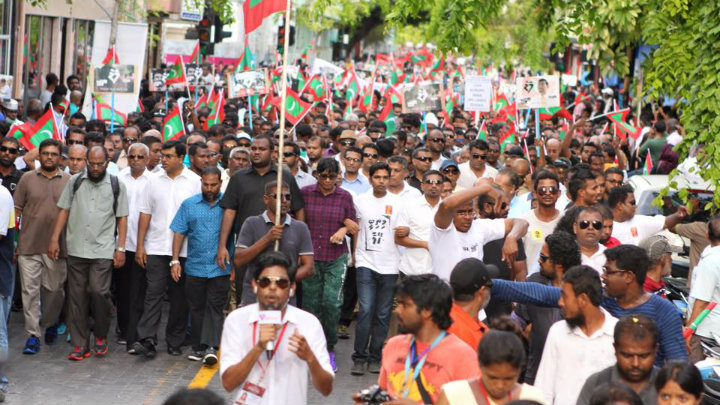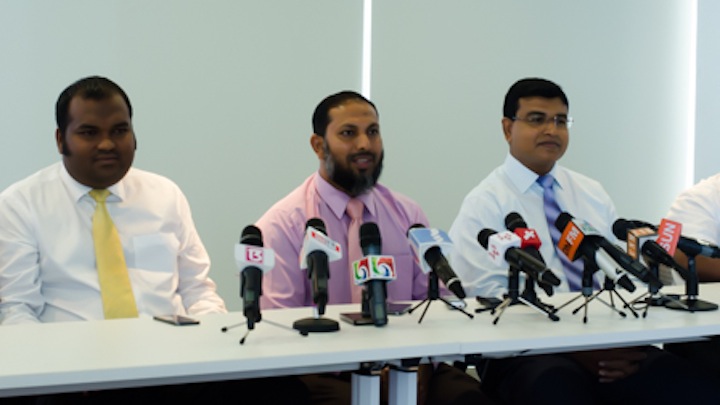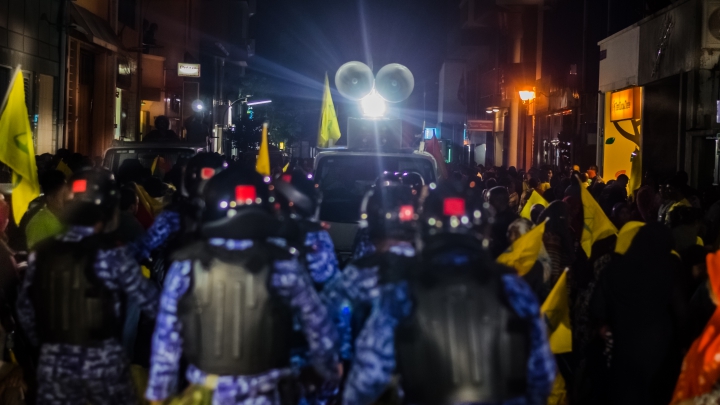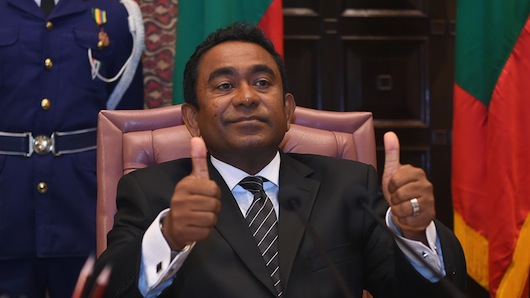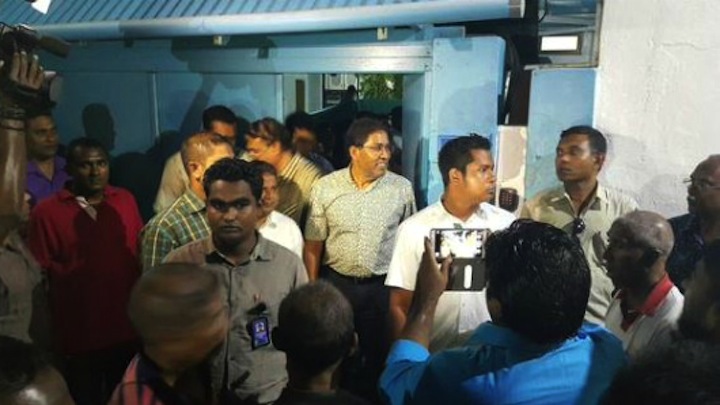The three opposition parties have welcomed President Abdulla Yameen’s call for talks, but some have called for the release of imprisoned leaders ahead of negotiations.
Jumhooree Party leader Gasim Ibrahim in a tweet said his party is ready to commence talks with the government, while Adhaalath Party spokesperson Ali Zahir said the religious conservative party will always heed calls for negotiations called for in good faith.
Sarukaaraa eku mashvaraakuran Jumhooree Party othee thayyaarah kamugai dhannavan!
— Qasim Ibrahim (@qasimibrahim) May 14, 2015
Welcoming the president’s call, the main opposition Maldivian Democratic Party’s (MDP) vice president Mohamed Shifaz insisted the party’s imprisoned leadership – ex-president Mohamed Nasheed and party chairperson Ali Waheed – must be able to sit at the table.
“We are ready to talk with President Yameen. These are discussions with President Yameen. Our leadership will participate on our behalf,” he said.
The Adhaalath Party has also said its detained leader, Sheikh Imran Abdulla, will represent the party in any official talks.
The religious conservative party called on the government to “create an atmosphere conducive to dialogue” by releasing Imran and other protesters arrested from the May Day anti-government demonstration.
President Yameen’s appeal comes amidst growing international pressure to release ex-president Mohamed Nasheed and ex-defence Minister Mohamed Nazim.
The JP, the Adhaalath Party and the MDP formed a coalition in March and continued daily protests over what they called the government’s attempt to silence the opposition.
The Maldivians against tyranny coalition have previously called for negotiations and demanded the government release Nasheed and Nazim. However, president Yameen maintains the pair were tried through independent courts, and says he cannot meet the opposition’s demands.
The president’s office spokesperson Ibrahim Muaz Ali told Minivan News that the government’s stance has not changed, and the president can only negotiate over lawful demands.
Nasheed and Nazim must appeal their respective convictions on terrorism and weapons smuggling, he said.
Meanwhile, MDP parliamentary group leader Ibrahim ‘Ibu’ Mohamed Solih told local newspaper Avas that the opposition coalition’s steering committee will discuss the president’s offer before making a comment.
The opposition held a 20,000-strong march in Malé on May Day after labelling President Yameen’s overtures at talks “insincere.” The president had appointed tourism minister Ahmed Adeeb as his representative for talks, but the opposition says they will only sit with the president himself.
They’ve also accused Adeeb of corruption and illicit connections with gangs, a claim the tourism minister has denied.
Nearly 200 people were arrested at the May Day protest and hundreds were injured in a police crackdown. Police used tear gas, stun grenades, pepper spray and baton charges to disperse protesters when they attempted to enter Malé’s restricted Republic Square.
MDP’s chairperson Ali Waheed, Sheikh Imran and JP deputy leader Ameen Ibrahim were arrested and remanded for 15 days.
The high court released Ameen today, but upheld the remand detention of Waheed and Imran.
Meanwhile, the criminal court has reportedly issued an arrest warrant for Gasim over the police’s claim he had funded the May Day protests. The JP leader is in Thailand at present.
